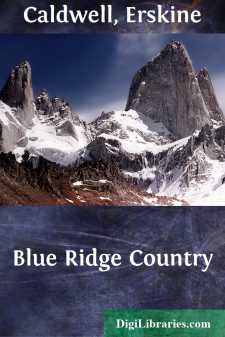Non-Classifiable
- Non-Classifiable 1768
Non-Classifiable Books
Sort by:
by:
Erskine Caldwell
The Land High mountain walls and bridgeless streams marooned the people of the Blue Ridge for centuries, shut them off from the outside world so that they lost step with the onward march of civilization. A forgotten people until yesterday, unlettered, content to wrest a meager living from the grudging soil, they built for themselves a nation within a nation. By their very isolation, they have preserved...
more...
THE HISTORY OF THE APPLE-TREE. It is remarkable how closely the history of the Apple-tree is connected with that of man. The geologist tells us that the order of the Rosaceae, which includes the Apple, also the true Grasses, and the Labiatae, or Mints, were introduced only a short time previous to the appearance of man on the globe. It appears that apples made a part of the food of that unknown...
more...
THE OUTLOOK FOR THE GROWING OF APPLES The apple has long been the most popular of our tree fruits, but the last few years have seen a steady growth in its appreciation and use. This is probably due in a large measure to a better knowledge of its value and to the development of new methods of preparation for consumption. Few fruits can be utilized in as many ways as can the apple. In addition to the...
more...
WHERE THERE IS NO APPLE-TREE The wind is snapping in the bamboos, knocking together the resonant canes and weaving the myriad flexile wreaths above them. The palm heads rustle with a brisk crinkling music. Great ferns stand in the edge of the forest, and giant arums cling their arms about the trunks of trees and rear their dim jacks-in-the-pulpit far in the branches; and in the greater distance I know...
more...
by:
Grace R. Clifton
THE CLASS TREE. (Tune: America.) Grow thou and flourish well Ever the story tell, Of this glad day; Long may thy branches raise To heaven our grateful praise Waft them on sunlight rays To God away. Deep in the earth to-day, Safely thy roots we lay, Tree of our love; Grow thou and flourish long; Ever our grateful song Shall its glad notes prolong To God above. "Let music swell the breeze, And ring...
more...
by:
Alexander Leslie
AUTHOR'S PREFACE. In the work now published I have, along with the sketch of the voyage of the Vega round Asia and Europe, of the natural conditions of the north coast of Siberia, of the animal and vegetable life prevailing there, and of the peoples with whom we came in contact in the course of our journey, endeavoured to give a review, as complete as space permitted, of previous exploratory...
more...
by:
Sherard Osborn
AN ARCTIC JOURNAL. The evils attendant on a hurried outfit and departure, as is the usual man-of-war custom, were in no wise mitigated in the case of the Royal Naval Expedition, fitted out at Woolwich, in 1850, to search for Sir John Franklin's Squadron; and a general feeling of joy at our departure prevailed amongst us, when, one fine morning, we broke ground from Greenhithe. The...
more...
INTRODUCTION. On the 25th of September, 1880, the leading English newspaper published the following words:— "Lieutenant Schwatka has now resolved the last doubts that could have been felt about the fate of the Franklin expedition. He has traced the one untraced ship to its grave beyond the ocean, and cleared the reputation of a harmless people from an undeserved reproach. He has given to the...
more...
CHAPTER I A stranger on first entering Arizona is impressed with the newness and wildness that surrounds him. Indeed, the change is so great that it seems like going to sleep and waking up in a new world. Everything that he sees is different from the familiar objects of his home, and he is filled with wonder and amazement at the many curious things that are brought to his notice. Judging the country by...
more...
by:
Andre Dacier
INTRODUCTION André Dacier's Poëtique d'Aristote Traduite en François avec des Remarques was published in Paris in 1692. His translation of Horace with critical remarks (1681-1689) had helped to establish his reputation in both France and England. Dryden, for example, borrowed from it extensively in his Discourse Concerning the Original and Progress of Satire (1693). No doubt this earlier...
more...











